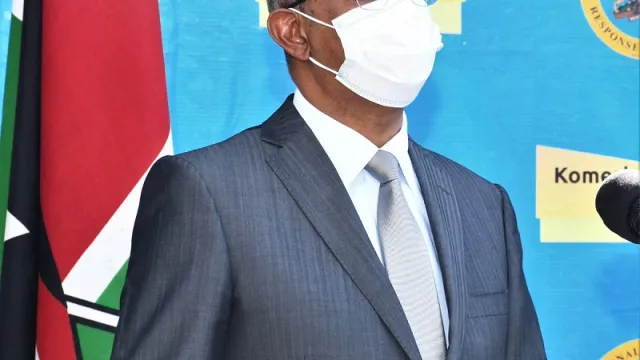Kenyans top consumers of pirated content in Africa

Kenyans top consumers of pirated content in Africa
A survey by a US cyber security firm shows that Kenyans are the leading consumers of pirated content in Africa.
US software security and media technology firm Irdeto report shows that top 10 piracy sites globally received over 174 million visits from users in five African countries between June and August last year.
Users from Kenya, Nigeria, Ghana, Tanzania, and South Africa made over 92.2 million visits in the period under focus, Irdeto said.
Online visits from Kenya to pirated content sites were the highest at seven million with users from South Africa coming second at five million.
IP addresses in Ghana reflected 2.4 million users, Nigeria 2.3 million while over 626,000 users from Tanzania accessed pirated content.
At the moment, piracy is the biggest conduit of revenue leaks for leading entertainment content broadcasters, intellectual property owners as well as media firms in Africa.
A range of software applications, videos including streaming of live sports; series and movies; music, as well as literature, are some of the most pirated content globally today and the scourge has taken a turn for the worst since Covid-19 struck.
From music to movies to video-on-demand content, entertainment companies are struggling to track the extent of the menace.
With increasing internet connectivity in African cities, once a pirated file is downloaded, it is sold, disseminated or even streamed to millions of viewers privately without a trace.
Read also: The Showmax series that’s got tongues wagging
According to the US Chamber of commerce Global Innovation policy center, digital video piracy costs the entertainment industry roughly $71 billion annually, eroding the sector's ability to create jobs, expand, while stifling economies.
"In Africa, it is not just individuals, but also large organizations that share content without paying the license fees owed to the creators, license holders, and distributors. This practice seriously threatens the sustainability of Africa's creative sector," Irdeto report said.
A spirited push is, however, underway to eliminate piracy with organizations such as Sports Rights Owner Coalition (SROC) as well as Partners Against Piracy championing the protection of property rights for content creators.
Courts of law are also stepping into the scene and delivering rulings that could help protect the rights of property holders.
The SROC, which is an alliance of over 50 global and national sports bodies, has for instance written to Kenyan MPs about the scheduled repeal of sections 35 B, C, and D of the Copyright Act in amendments that are currently before Parliament.
The proposed changes as contained in the Copyright Amendment Bill would effectively eliminate take-down notices, the legal tool that copyright holders use to control the use of their content besides giving them the ability to make content available to consumers online.
"They are particularly important for sports rights owners, where the ability to remove unauthorized content immediately is crucial in protecting the value of live sport," SROC Chairman Mark Lichtenstein explained in a letter to Kenya's Parliament.
The Kenya Copyright Board (KeCOBO) Executive Director Edward Sigei said: “Take-down notices are a critical tool for copyright holders and related rights holders to fight digital content piracy by controlling the distribution and economic viability of their work and how it is accessed online.”
"Piracy has a serious negative effect on our economy and on the ability of our creative professionals to earn a living. It harms investor confidence and tax revenue, and can also affect trade opportunities if we are not seen as a country where intellectual property is respected and protected," Vice President, Cyber Services at Irdeto, Mark Mulready says.
Last year, Seychelles' apex court ruled that cable and satellite firm, Intelvision TV, breached the law when broadcasting the 2019 African Cup of Nations matches, thereby violating the exclusive rights awarded to Multichoice Africa and their subsidiary SuperSport.
The Island nation's judges further directed that Intelvision TV books be audited to establish the revenues earned from the infringement, with a view to settle on the appropriate compensation for Multichoice.
“Illegally streaming content on digital platforms without paying for it or having the rights to do so has exploded globally, and on the African continent, particularly during the pandemic. Other forms of piracy are hardware-related crimes – such as illegal connections and the sale of counterfeit decoders,” Multichoice said after the ruling.
For most sports organizations, the sale of broadcasting and media rights is their primary source of revenue, generating the money needed to fund major tournaments, build and refurbish stadiums, and also help develop sports talents at the grassroots level.
Further, the royalties that broadcasters draw from selling their exclusive content to other media companies enable them to invest in technical broadcasting infrastructure.



